Without proper direction, selling a business can quickly become overwhelming and chaotic. Organizing the process into concrete tasks will help keep priorities in order and ensure that important things don’t fall through the cracks.
Selling a Business Checklist:
#1 Gather Advisors
Find the following professionals to advise and assist you in the process of selling your business. As you progress through the checklist, the need for these professionals will become increasingly clear.
- Accountant (an expert in taxes and financial details)
- Attorney (a legal expert)
- Business Broker (an expert in buying and selling businesses; this article covers more specifics about what a business broker will do)
#2 Sign Confidentiality Agreements
It is critical that you maintain confidentiality throughout the selling process. Even the best-intentioned people can inadvertently compromise your sale. If word spreads that you are selling your business, it can raise concerns among your employees and your customers regarding the future of the business, even if the concerns are completely unfounded.
In order to preserve the stability of your company and the integrity of your selling process, confidentiality must be a top priority until the close of your sale. Only share this information with a very select few people within the protection of a business sale confidentiality agreement.
#3 Organize Financials
Employ the assistance of your CPA as needed, and gather the following paperwork:
- Federal Tax Returns for the last 3 years
- Last 3 years Profit and Loss Statement (P&L) including balance sheet
- Interim P&L including balance sheet
- Average value of inventory of saleable product on hand at any time of year
- Equipment List
- Copy of tax bill on real estate if the real estate may be included in the sale
- Copy of any real estate appraisal that is available
- Lease information
#4 Property & Equipment Check
Ensure that any overdue maintenance or upkeep of facilities and equipment has been completed. Your business’s “curb appeal” will affect a prospective buyer’s perception of your business’s value, which will ultimately affect the price it will bring — for better or worse.
#5 Business Valuation
Have a professional conduct a business valuation so you know what the range of value should be for your company. Remember that your business is worth what someone is willing to pay for it. Most values are determined by weighted averages of EBITDA, Cash Flow, or Revenue.
With all of the factors involved, it is nearly impossible to accurately determine the value of your own business, so look to your business broker/advisor for assistance. This step is also a good time for a pre-screening with a lender to ensure your company meets current lending guidelines.
#6 Marketing
Marketing is an essential step in selling a business, and maintaining confidentiality throughout the marketing process is critical. Understand how and where your business will be marketed, and help your business broker/advisor by providing some key strategic targets to engage with or to avoid. Be involved with the creation of the business profile that will show off your business. No one knows your business better than you.
Make sure that the marketing material protects your confidentiality and identity of your business. Marketing materials should not have any information that has simply been copied and pasted from your website or company marketing material.
#7 Pre-Screening
Once inquiries begin arriving, a business broker will help save you time and energy by pre-screening buyers to ensure they are not only serious but also financially capable of purchasing your business.
Having a business broker also continues to protect your confidentiality at this point in the process. For example, Viking’s business brokers insist that prospective buyers sign NDAs or confidentiality agreements, then meet with them face-to-face (if local) to educate them on the buying process. (Our business brokers also present prospective buyers to you for your approval before we release any sensitive information to them, such as your business’s name.)
#8 Buyer/Seller Meeting
Once you have identified a serious prospective buyer, meet with the prospective buyer together with your business broker/advisor. This meeting is a chance for you to get to know the prospective buyer, to explain your business, and for the buyer to ask any questions they may have.
Typically, the discussion at this meeting is related to strategy, company history, nature of the business, and other high-level topics. (Fact-checking and reviewing smaller details are typically handled during the due diligence step, post-offer.)
#9 Offer for Purchase
A formal offer to buy your business is presented as an “Offer for Purchase” or “Letter of Intent” (LOI). This document outlines the details of the offer, including the offered purchase price, the payment terms, the training and transition period, any required employment or non-compete terms for you (the Seller) and potentially key employees, and any other conditions related to the offer.
#10 Accept, Reject, or Negotiate
After reviewing the details, you may accept the offer, reject it, or negotiate any aspects of the offer. Remember to negotiate more than price. Do not get hyper focused on the purchase price alone; price is one part of the big picture. Understand your tax liabilities, seller notes, hold-backs, earn-outs, non-competes and consulting agreements.
Only after an offer is agreed upon will you proceed to the final steps to selling a business.
#11 Due Diligence
The time between an accepted offer from the buyer and the official closing is when the buyer performs their due diligence. The objective during the due diligence period is to confirm that the business was accurately represented to the buyer prior to issuing their offer letter. Most buyers are looking only for material differences or surprises that were previously unknown to them, not minor discrepancies.
Clean books and records make this process significantly easier. Have the following information readily available to help the process along:
- Financial Reports
- Employee Records and Manuals
- Sales and Marketing Material
- Business Processes
- Insurance Policies
- Benefit Package Policies
- Vendor and Supplier Agreements
#12 Prepare Closing Documents
When due diligence and buyer financing arrangements are complete, it is time to draft the closing documents and complete the sale. Now is the time to trust your attorneys and accountants to help you with the various legal documents and to ensure you minimize the tax impact of the sale.
#13 Closing
Your business broker will help ensure that you collect your funds and have all of the documentation you need when you leave the closing table.
From our decades of experience in buying and selling businesses in a wide range of industries, Viking M&A is positioned to guide you through the selling process from start to finish. If you are thinking about selling your business, contact Viking today for a confidential, no-obligation consultation.

